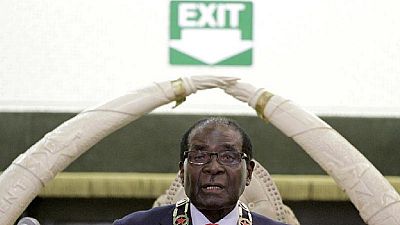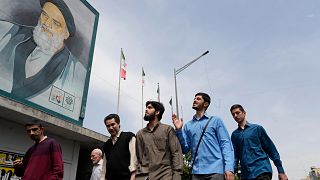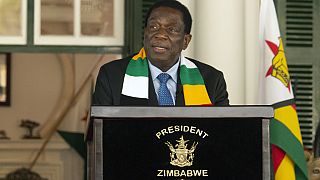Zimbabwe
Robert Mugabe has finally resigned as president of Zimbabwe, a week after the army took over power and placed him under house arrest.
A letter signed by Zimbabwe’s only president since 1980 said the decision was voluntary. The Parliament confirmed receipt of the said letter and subsequently suspended impeachment processes.
Mugabe, 93, has been under intense pressure at home and from outside to step down after 37 years in charge but had previously refused.
BREAKING: Zimbabwe’s president Robert Mugabe has resigned – says parliament speaker Jacob Mubenda
— africanews (@africanews) November 21, 2017
Zimbabwe’s top general said on Monday that talks were planned between President Robert Mugabe and former Vice President Emmerson Mnangagwa. Mugabe’s firing of Mnangagwa was at the heart of the army’s takeover.
Earlier today, Zimbabwe’s ruling ZANU-PF resolved to bring a motion in parliament on Tuesday (November 21) to impeach Mugabe, after an earlier deadline expired for the besieged leader to resign and bring the curtain down on nearly four decades in power.
There has been celebrations across the southern African country after news filtered through that Mugabe had accepted to leave. The state-run Herald Newspaper that until recently was pro-Mugabe also confirmed the resignation.
My fellow citizens Robert Gabriel Mugabe has resigned. The journey has been long and hard but we did it. I can’t stop crying. The future beckons
— #ThisFlag E Mawarire (@PastorEvanLive) November 21, 2017
You can step down like Madiba
Or you can “resign” like Robert Mugabe, saysnkosi_miltonof the BBCAfrica— Ferial Haffajee (@ferialhaffajee) November 21, 2017
You can step down like Madiba
Or you can “resign” like Robert Mugabe, saysnkosi_miltonof the BBCAfrica— Ferial Haffajee (@ferialhaffajee) November 21, 2017














Go to video
Pics of the day: April 01, 2025
01:40
Newly elected IOC President Kirsty Coventry celebrated on return home to Zimbabwe
Go to video
Pics of the day: March 24, 2025
02:09
Electric tricycles empower women in rural Zimbabwe
Go to video
Africa advances toward financial integration with new currency exchange marketplace{Business Africa}
00:33
Amon Murwira in Moscow: a Step towards stronger bilateral relations